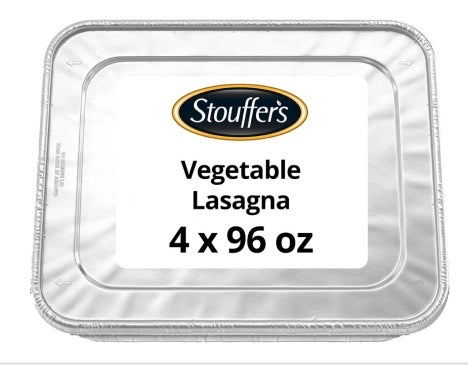
Learn Sustainability From College Foodservice
Campus foodservice directors are sustainability experts. Their students demand it. Here’s how you can benefit from the lessons they’ve learned.
Away from home and free to flex the muscles of their strengthening values and beliefs, college students don’t shy away from making known their feelings about sustainability.
A Pew Research study points to the strength of their convictions: 76% of U.S. Gen Zs (the college-age demographic) consider climate change to be one of their biggest concerns while 37% named it as their top concern.1
On campuses across the country, forward-thinking, environmentally friendly practices are a few steps ahead of the industry at large. Here are 10 of the smart, earth-first things foodservice directors are implementing, many of them restaurant-industry ready and easily put in place as sustainability becomes a business priority.
- Takeout meals, as popular on campuses as in the larger restaurant world, can create mountains of waste. Some colleges have a program that allows students to purchase a reusable container, good for unlimited usage, that’s washed and sanitized by the foodservice department each time it’s used.
- Promoting use of reusable bottles is a no-brainer alternative to the estimated 50 billion plastic water bottles that are emptied and tossed in the United States on an annual basis. Filtered water fountains cut down considerably on cost to students and plastic waste.
- Minimizing product footprints can happen in many ways. Borrowing an idea hatched years ago with fountain syrups, some companies are devising waterless versions of plant milk, a strategy to trim shipping weights and hence, the amount of fuel used to move product.
- Dishware that swaps foam- and paper-based products with compostable alternatives is in use or trial at many schools, and these schools also have robust composting programs (either on site or under contract with a commercial composting facility) to ensure that the packaging is disposed of properly.
- Sourcing locally and in some cases even growing their own food on farms or in greenhouses are increasingly common on campuses, the freshness factor and diminished transport distance appealing to students and foodservice directors.
- Composting has moved into both kitchens and dorms, reducing solid organic waste. At Bard College, volunteer student Composting Commandos pick up buckets from dorms and deliver composted waste to a community garden while other schools send food waste to local farms for use as animal feed.
- Conveniently placed recycling bins in dining areas are on the front lines of defense. Anecdotal evidence shows that students are highly likely to use them, especially when they’re easily accessed.
- Beverage vending machines with lights that turn off during periods between use while keeping refrigeration capabilities active are big energy savers. Power usage can be cut in half, saving money, and reducing CO consumption.
- Switching lightbulbs from incandescent to compact fluorescent in kitchens and dining areas accrues cash and CO savings.
- Green cleaning supplies that are easier on the planet and just as effective at serious cleaning and sanitizing are in use on many campuses.
Source: 1. Pew Research Center: Gen Z, Millennials Stand Out for Climate Change Activism, Social Media Engagement With Issue (May 2021).
The information provided is based on a general industry overview and is not specific to your business operation. Each business is unique, and decisions related to your business should be made after consultation with appropriate experts.







